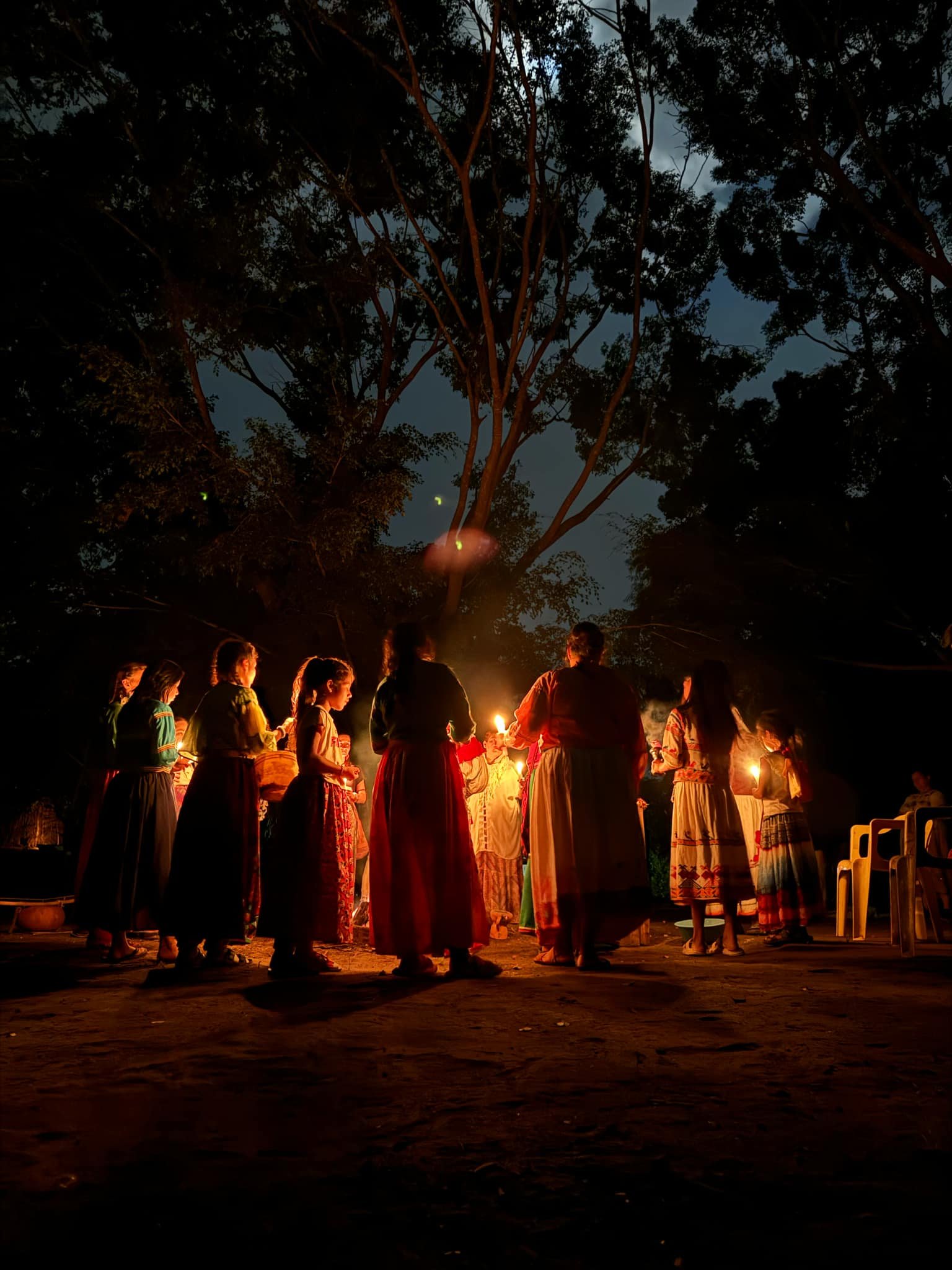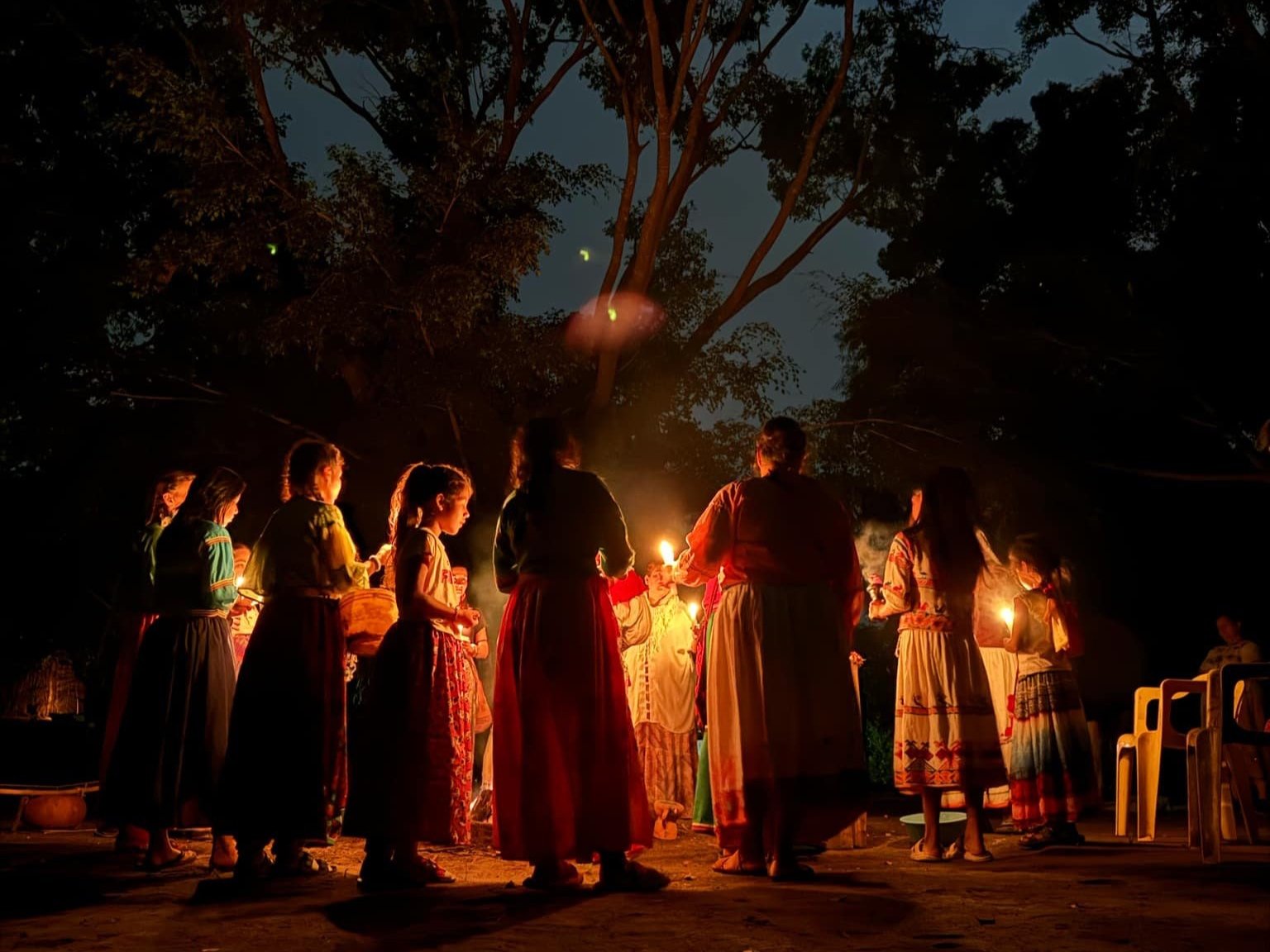
CULTURAL PERSPECTIVES
International Indigenous Cultural Exchanges
Spatially-identified societies and indigenous peoples across the Americas share a profound connection to the land through the societal technology of ceremony. From the northern reaches of Canada to the southern tips of South America, these ceremonies consistently honour the sky, land, plants, animals, and most importantly, water. Through song, dance, and various other activities, these ceremonies not only celebrate the external world but also foster deep bonds of peace and harmony among family and community members. This practice of indigenous ceremony is the very fabric that weaves together all traditional permaculture practices.
Indigenous peoples in Canada are among the most privileged globally. This privilege manifests in access to clean drinking water, clean air, abundant forests, healthcare, education, and monetary funding opportunities. This fact does not, however, brush away the genocide directed towards indigenous peoples in Canada. But even the smallest indigenous communities in Canada often manage annual budgets in the millions of dollars, while the wealthiest communities oversee billions. This stands in stark-contrast to small indigenous pueblos in Mexico’s Nayarit state, Peru’s Sacred Valley, or the Oaxacan jungle mountains where social assistance, agricultural infrastructure grants, and cultural bursaries are nearly non-existent. In most cases, these regions, indigenous peoples are often marginalized as the lowest caste in society and have no access to grocery stores. Yet, despite their material challenges, these indigenous communities often experience less anxiety, possess fewer material goods, maintain stronger familial and community networks, and continue to practice pre-Columbian ceremonial rituals closely tied to their agricultural traditions.
Traditional Dene stickgame ‘Lahal’ being played by an inter-tribal group of Tsilhqot’in, Secwepemc, Wixiratika, Audomi, Zapotec, and Mayan participants
Nayarit, Mexico, Oct 2023
NENQAYNI co-founder Trevor Mack playing music with Quechua youth artist representatives Suni Sonqo & Mayta Katari Vizcarra Wood.
Peru, June 2022
Nuxalk youth Malakai Andy sharing a traditional ‘kintu’ offering with Quechua youth Juan Abel Ojeda Llanos during a NENQAYNI cultural exchange in the: Amazon Rainforest, Peru, June 2022
The vision of 'Cultural Perspectives' is to reinforce indigenous traditional agrarian (or “permaculture”) ceremonies and to ensure the correct use of biotechnologies in our indigenous communities, and contextualize Indigenous Food Soveriengty (IFS) from a localized perspective, to a global network of interconnected communities and ecosystems. Separated only by distance, most, if not all, spatially-identified societies share the traditions that instantly connect visiting delegates – even if the spoken language is not the same.
Every person and every community have something to share and learn while travelling to other nenqayni communities. Knowledge sharing, ceremonial exchange, and on-the-land education are all experienced within the ‘Cultural Perspectives’ international cultural exchange project.

PAST YOUTH CULTURAL EXCHANGE TRIPS
2024
LOCATION
Veracruz, Mexico
Las Cañadas Agroecology & Permaculture Center
Tl’etinqox International Cultural Garden Centre
LOCATION
Tl’etinqox, Tsilhqot’in nation
LOCATION
Sacred Valley of the Incas
Ñawpa Ñan community, Peru
NATIONS REPRESENTED
Tsilhqot’in (Canada), Zapotec (Mexico), Wixiratika (Mexico)
NATIONS REPRESENTED
Nuxalk (Canada), Tsilhqot’in (Canada), Zapotec (Mexico), Otomi (Mexico), Secwepemc (Canada), Costa Rica
NATIONS REPRESENTED
Tsilhqot’in (Canada), Zapotec (Mexico), Nuxalk (Canada), Quechua (Peru)
LOCATION
Huichol & Otomi Sacred Corn Ceremony
Nayarit, Mexico
NATIONS REPRESENTED
Wixiratika (Mexico), Otomi (Mexico), Tsilhqot’in (Canada), Zapotec (Mexico)







